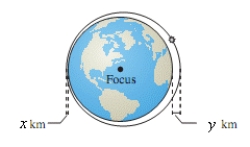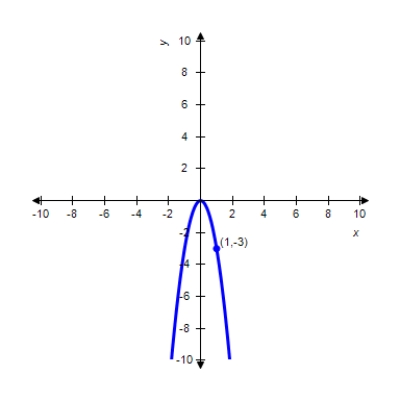Exam 6: Topics-In-Analytic-Geometry
Exam 1: Trigonometry393 Questions
Exam 2: Analytic-Trigonometry266 Questions
Exam 3: Additional-Topics-In-Trigonometry203 Questions
Exam 4: Complex-Numbers275 Questions
Exam 5: Exponential-And-Logarithmic-Functions261 Questions
Exam 6: Topics-In-Analytic-Geometry554 Questions
Exam 7: Prerequisites613 Questions
Select questions type
The  -coordinate system has been rotated
-coordinate system has been rotated  degrees from the
degrees from the  -coordinate system.The coordinates of a point in the
-coordinate system.The coordinates of a point in the  -coordinate system are given.Find the coordinates of the point in the rotated coordinate system.
-coordinate system are given.Find the coordinates of the point in the rotated coordinate system.  ,
, 
(Multiple Choice)
4.8/5  (40)
(40)
Find the inclination  (in radians and degrees) of the line passing through the points.Round your answer to four decimal places for radians and round your answer to one decimal places for degree.
(in radians and degrees) of the line passing through the points.Round your answer to four decimal places for radians and round your answer to one decimal places for degree. 
(Multiple Choice)
4.8/5  (31)
(31)
A point in polar coordinates is given.Convert the point to rectangular coordinates.Round your answers to one decimal places. 
(Multiple Choice)
4.9/5  (29)
(29)
Find the distance between the point and the line.Round your answer to four decimal places. 
(Multiple Choice)
4.9/5  (43)
(43)
The Halley's Comet has an elliptical orbit with an eccentricity of  .The length of the major axis of the orbit is approximately 35.1 astronomical units.Find a polar equation for the orbit.How close does the comet come to the sun?
.The length of the major axis of the orbit is approximately 35.1 astronomical units.Find a polar equation for the orbit.How close does the comet come to the sun?
(Multiple Choice)
4.8/5  (30)
(30)
The first artificial satellite to orbit Earth was Sputnik I (launched by the former Soviet Union in 1957).Its highest point above Earths surface was 943 kilometers, and its lowest point was 211 kilometers (see figure).The center of Earth was at one focus of the elliptical orbit, and the radius of Earth is 6392 kilometers.Find the eccentricity of the orbit.Round your results to four decimal place. 

(Multiple Choice)
4.7/5  (24)
(24)
Find the rectangular coordinates of the point given in polar coordinates.Round your results to two decimal places. 
(Multiple Choice)
4.7/5  (35)
(35)
Find the inclination Θ (in degrees) of the line with a slope of m.Round your answer to one decimal places. 
(Multiple Choice)
4.9/5  (39)
(39)
Find the center and vertices of the hyperbola and sketch its graph, using asymptotes as sketching aids. 
(Multiple Choice)
4.8/5  (33)
(33)
Use a graphing utility to find one set of polar coordinates for the point given in rectangular coordinates, r > 0.Round your answers to three decimal places. 
(Multiple Choice)
4.8/5  (34)
(34)
Find the standard form of the equation of the parabola and determine the coordinates of the focus. 
(Multiple Choice)
4.7/5  (42)
(42)
Find the standard form of the equation of the ellipse with the given characteristics.
Vertices:  ; minor axis of length 10.
; minor axis of length 10.
(Multiple Choice)
4.8/5  (42)
(42)
Find a set of parametric equations for the rectangular equation. 
(Multiple Choice)
4.8/5  (26)
(26)
Give the standard form of the equation of the parabola with the given characteristics. vertex: (-7, -9) directrix: 
(Multiple Choice)
4.8/5  (34)
(34)
Select the graph of the polar equation using symmetry, zeros, maximum r-values, and any other additional points.

(Multiple Choice)
4.8/5  (27)
(27)
Showing 101 - 120 of 554
Filters
- Essay(0)
- Multiple Choice(0)
- Short Answer(0)
- True False(0)
- Matching(0)